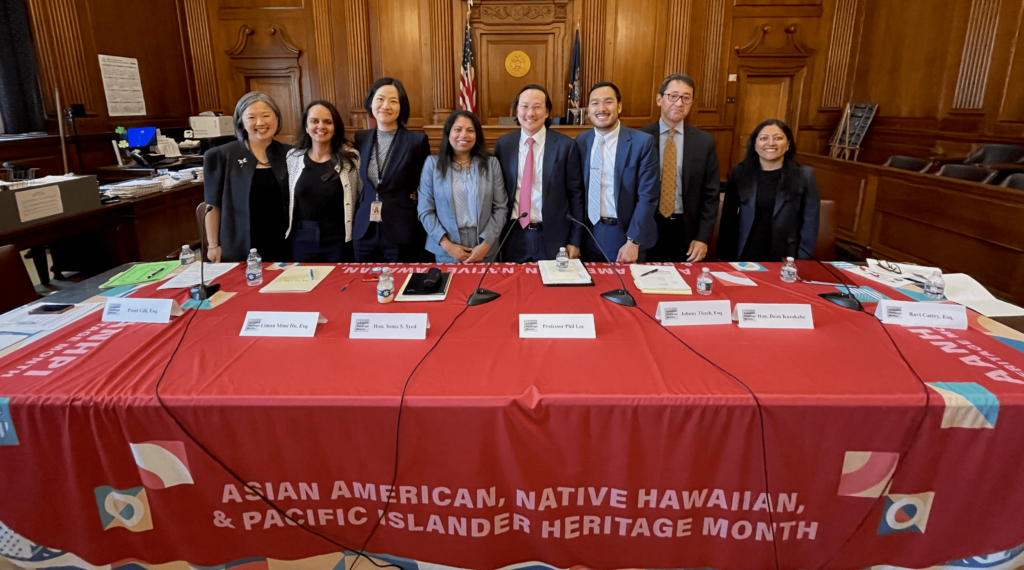
On May 20, 2025, the GSPI and Judiciary Committees co-sponsored “A Legacy of Leadership and Resilience: Then and Now in the Context of Korematsu and Thind” in conjunction with the Queens County Women’s Bar Association (QCWBA) and the Equal Justice in the Courts Committee (QSC-EJIC). The event featured Queens Supreme Court Justice Karen Lin, QCWBA President Preet Gill, Court Attorney Liman Mimi Hu, Queens Civil Court Judge Soma Syed, St. John’s University School of Law Professor Philip Lee, and Associate Law Clerk Johnny Thach. Welcome remarks also included Queens Supreme Court Justice Frederick D.R. Sampson and Judge Shahabuddeen A. Ally, Administrative Judge of the Civil Court of the City of New York.
In celebration of AANHPI Heritage Month in May, the event highlighted three landmark cases in American history on race, civil rights, and belonging: United States v. Thind, Gong Lum v. Rice, and Korematsu v. United States. Thind was a 1923 case which held that Thind, an Indian man who served for the U.S. in World War I, was not Caucasian and therefore ineligible for naturalized citizenship. Lum was a 1927 case that upheld racial segregation and denied admission to a Chinese American nine-year-old student to an all-white school district. Korematsu was a 1944 case that upheld the conviction of a Japanese American man for violating an exclusion order mandating people of Japanese ancestry, including Japanese Americans, to be incarcerated in internment camps under suspicions, with no factual basis, of being enemy aliens involved in espionage and sabotage.
The featured speakers, divided in teams, examined each case through multiple lenses: the historical background around each case, the remarkable individuals who stood for justice and challenged exclusionary and racist policies and laws at the time, the holding of each case, and what transpired after. Professor Lee emphasized the theme of Asian Americans as “perpetual foreigners” and the construction of race in the context of racial triangulation.
The event was well-attended with over 100 people. Momos from Bajeko Sekuwa and bubble tea from YAAAS Tea were provided as food and refreshments. Thank you to the speakers, organizers, co-sponsors, and attendees. Click here to learn more and join the GSPI Committee and here to learn more and join the Judiciary Committee.


